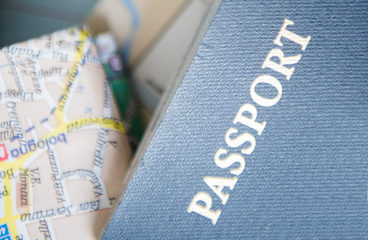
How can you stay healthy on your trip?
The best way to stay healthy on your trip is to plan ahead. Talk with your doctor several months before you travel to another country. It's important to allow enough time to get the vaccine doses that you need. For example, if you need the hepatitis A vaccine, you'll need 2 doses spaced at least 6 months apart. Also ask your doctor if there are medicines or extra safety steps that you should take. Check with your local health department or travel health clinic for other travel tips.
What can you do to prevent health problems?
Get needed vaccines
- Make sure you are up to date with your routine shots. They can protect you from diseases such as polio, diphtheria, and measles. These diseases are still a problem in some developing countries.
- Get other vaccines you need. Your doctor or a health clinic can tell you which ones you need for your travels. Here are some examples:
- Hepatitis A vaccine, if you travel to developing countries.
- Yellow fever vaccine, if you visit places in South America and Africa where the disease is active.
- Typhoid fever vaccine, if you travel to Central and South America, Africa, or some areas of Asia.
Bring medicines with you
- If you take medicines, bring a supply that will last the length of your trip. Get a letter from your doctor that lists your medical conditions and the medicines you take. Bring prescriptions for refills if you will be gone for a long time. Also bring any medical supplies you may need such as blood sugar testing supplies or insulin needles.
- If you are going to an area where malaria is a risk, ask your doctor or health clinic for a prescription to help prevent infection. This medicine works best if you take it before, during, and after your trip.
- You may want to bring medicine for traveler's diarrhea. Over-the-counter medicines include:
- Bismuth subsalicylate (Pepto-Bismol).
- Loperamide (Imodium).
Make safer choices as you travel
- Practice safer sex. Using condoms can prevent sexually transmitted infections.
- In areas where mosquito-borne illnesses are found, use DEET insect repellent. Wear long pants and long-sleeved shirts. Use mosquito netting to protect yourself from bites while you sleep.
- Many developing countries don't have safe tap water. Only have drinks made with boiled water, such as tea and coffee. Canned or bottled carbonated drinks, such as soda, beer, wine, or water, are usually safe. Don't use ice if you don't know what kind of water was used to make it. And don't use tap water to brush your teeth.
- Be aware that you could be injured in cars, boats, or public transportation. Driving can be dangerous due to bad roads, poor driver training, and crowded roadways. Always wear your seat belt if available. If you hire a driver or taxi, ask the driver to slow down or drive more carefully if you feel unsafe.
- Air pollution in some large cities can be a problem if you have asthma or other breathing problems. Avoid those cities when air quality is poor. Or stay indoors as much as possible.
- Be careful around dogs and other animals. Dogs in developing countries are often not tame and may bite. Rabies is more common in tropical and subtropical regions.
- If you're going to a place that's much higher above sea level than you're used to, ask your doctor how to avoid altitude sickness. The doctor may also prescribe medicine to help treat it.
Where can you get the best information?
- Use the Internet to find travel health information. Try these websites:
- www.cdc.gov/travel. This website is for the Centers for Disease Control and Prevention (CDC).
- www.who.int/ith/en. This website lists information from the World Health Organization (WHO) on travel, required immunizations, and disease outbreaks.
- Find out where you can get the best medical care in the region you are visiting. See the U.S. State Department's website at www.usembassy.gov. It lists every U.S. embassy worldwide. It also lists some doctors and medical facilities in those countries.
- Take along the phone numbers and addresses of embassies in the areas you will visit. They can help you find a doctor or hospital. Find out if your insurance company will cover you. You may want to get special travel health insurance.
- If you are taking a cruise, you can find your ship's health record on this website: www.cdc.gov/nceh/vsp.
Where can you learn more?
Go to http://www.healthwise.net/patientEd
Enter R129 in the search box to learn more about "Learning About Healthy Travel Abroad".
Current as of: October 24, 2024
Author: Ignite Healthwise, LLC Staff
Clinical Review Board
All Ignite Healthwise, LLC education is reviewed by a team that includes physicians, nurses, advanced practitioners, registered dieticians, and other healthcare professionals.

